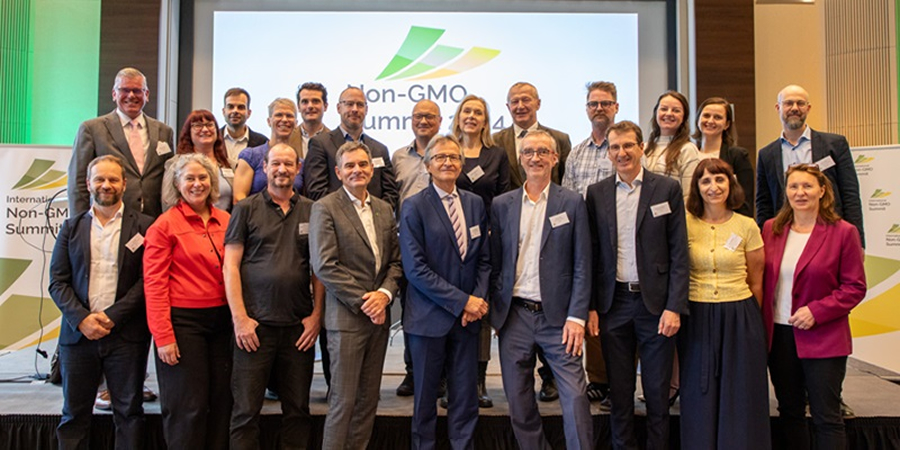October 14, 2024
International non-GMO summit calls for regulation of new genomic techniques

More than 160 representatives from the international non-GMO industry and leading European associations gathered in Frankfurt, Germany for the International Non-GMO Summit 2024, to address the challenges posed by the EU Commission's proposed deregulation of New Genomic Techniques (NGTs), AquaFeed reported.
Operators from 23 countries across four continents met across the full non-GMO value chain delivered a united message advocating for freedom of choice and transparency in the regulation of NGTs.
Alexander Hissting, managing director of the German Association for Food without Genetic Engineering (VLOG), spoke on behalf of the organisers, emphasising the economic success and consumer support for non-GMO markets. "We are ready and willing to face current political and market challenges," said Hissting, adding that NGTs should be regulated in the same way as all other GMOs. He reaffirmed, "The Non-GMO sector is here to stay!"
The current Hungarian Presidency of the Council of the European Union and the German Federal Ministry of Food and Agriculture (BMEL) are seeking a compromise on the EU's GMO legislation revision. This revision aims to ensure consistent labelling, coexistence, and traceability in managing NGTs.
István Nagy, president of the EU Council for Agriculture and Fisheries, welcomed attendees by stating, "The precautionary principle should be applied when new technologies are used, and organisms produced with such techniques are released into the environment and food chain." He stressed the importance of providing consumers with adequate information and guaranteeing their freedom of choice.
German State Secretary Silvia Bender voiced her concerns over the European Commission's draft regulation on NGTs. She questioned whether it sufficiently considers the interests of consumers, farmers, and food processors. "The market for non-GMO products has been growing for years, and we want to preserve this added value," she stated. Bender stressed the need for functioning coexistence measures throughout the value chain to protect non-GMO products.
Dietmar Vybiral from the Austrian Ministry of Health provided an update on the ongoing negotiations regarding the EU's GMO legislation. He noted that EU Council Ministers have not yet reached a "general approach," preventing trilogue negotiations from beginning. Vybiral urged summit participants to strengthen critical voices in their governments against the deregulation of NGTs. He reaffirmed Austria's position that NGTs must be regulated as GMOs, which would require proper risk assessments, labelling, and traceability to ensure consumer knowledge and freedom of choice.
Odd-Gunnar Wikmark, coordinator of the European DARWIN project and representative of the Norwegian research institute NORCE, discussed research into detection methods for NGTs. He reported that reliable detection methods for known varieties of NGTs are being developed, with confidence that untargeted detection methods will be available in the future.
Hans-Peter Dejakum, a representative of the South Tyrolean company Loacker, which produces premium wafers and chocolate, highlighted the importance of excluding GMOs from the company's supply chain. Dejakum stated, "We are tracking consumer wishes in around 70 countries, and we know that our customers truly want our non-GMO products." Loacker exports its non-GMO labelled products to over 100 countries worldwide and has made significant investments in building a credible non-GMO value chain.
International experts in raw material production and agricultural trade agreed that key regions for non-GMO commodities, such as soy, corn, and rapeseed, have strong market coverage. These regions include Latin America, particularly Brazil, and parts of Europe, especially Ukraine. Presenters Bertalan Kruppa from Donau Soja, Maxime Montserrat from Bunge, and Daniele Marcomin from Agribusiness di Covolato confirmed that there are sufficient opportunities for growth in GMO-free feed production to meet increasing demand. They assured that the supply of GMO-free goods is secured for the current and upcoming year.
- AquaFeed










